While ‘soft skills’ seems to be a relatively new term for the modern world of work, experts have known of their importance for a long time. Research conducted by Harvard University, the Carnegie Foundation, and Stanford Research Centre found that 85% of job success comes from having good soft skills and people skills, and only 15% of job success is dependent on technical skills and knowledge. This study was published in 1918.
Despite knowing these numbers for over a century, businesses still put the majority of their training budget into ‘hard skills’ — technical skills — for their employees.
As workplaces shift and adapt to a world that is increasingly online, navigating the boom in hybrid and remote working, and trying to keep up with ever-evolving technological innovations, having a workforce with strong soft skills is essential. Research by Deloitte suggests that jobs requiring intensive soft skills are expected to grow 2.5 times faster than other job types, and that by 2030 around 63% of jobs will be soft skills roles.
In this blog, we’ll outline what soft skills are and some examples, explore the value of soft skills in the workplace, and suggest ways to develop soft skills amongst employees.
What are soft skills?
Soft skills aren’t specific to any job, but are personality traits, personal attributes, and interpersonal skills which enable an individual to interact effectively with others.
Soft skills are meant to complement hard skills, the skills specific to a role which are technical, and individuals who have a good balance of both are highly sought-after in the job market by recruiters and hiring managers.
Some examples of important soft skills are listed below.
Communication
Effective communication goes beyond just having the ability to hold a conversation. Instead, you should be actively listening. Key characteristics of active listening include paying attention to what the other person is saying, how they’re saying it, and their body language, summarising what they say to ensure you understand it correctly, asking open-ended questions, and showing empathy.
You should be able to convey information clearly and concisely to ensure the person or people on the receiving end understand what you’re saying. Having good communication skills is essential for building personal and professional relationships with colleagues or clients, avoiding misunderstanding, and resolving conflicts.
Teamwork
Having good teamwork skills means you’re able to collaborate effectively with colleagues and co-workers across the company, not just within your department. It’s essential to be able to share ideas in a safe space and work towards common goals together.
Problem-solving
Being able to problem-solve efficiently means you’re able to identify the root cause of a problem and work on solving it, rather than working within systems and processes that don’t work very well. The key to having good problem-solving skills is the ability to find an actionable solution and implement it, to make everything work more smoothly. Improving critical thinking and practising seeing a situation from every angle will make you a better problem solver.
Time management
While time management may sound like the ability to be at work on time, it also encompasses the ability to prioritise tasks, set goals, and manage your own workload effectively. Having good time management means you’re able to get things done within your allotted working hours, reducing stress and doing a good job without the need to rush.
Adaptability
As modern workplaces continue to evolve in the face of technological innovations and in-depth data gleaned from multiple sources, employees need to be able to adapt to new software or new ways of working without it being a big disruption. Being adaptable and flexible means being able to embrace changes rather than shy away from them, making innovation more seamless and creating businesses that can keep up with competitors.
Creativity
Being able to think creatively is the ability to find innovative ideas. While sharing ideas and participating in brainstorming sessions requires a safe space where everyone feels heard and respected, when you can think creatively you’re able to create things that are different from competitors, allowing you to stand out in a busy market.
Emotional intelligence
Emotional intelligence (sometimes abbreviated to both EQ and EI) leads to better decision-making abilities, a better relationship with colleagues, and higher productivity. It’s especially important for leaders to have high emotional intelligence, as this trait enables them to productively manage a team effectively.
Leadership
Team leaders need to do more than just manage a group of employees towards goals. Now more than ever, leaders need to be able to lead by example, set clear expectations, and create a positive and inclusive work environment where everyone feels listened to. Leaders who are able to inspire and motivate team members achieve higher levels of success than those who can’t.
How soft skills benefit the workplace
Having a workforce with excellent soft skills brings many benefits to the workplace. Some of these are outlined below.
Increased productivity
Research has suggested that employees who undertake training in developing their soft skills are 12% more productive than those who haven’t had the training. This same study also showed that the productivity gains from the soft skills training converted to a 256% return on investment.
Stronger relationships
When employees can empathise with others, build rapport, and motivate themselves and the others around them, they’re able to build stronger relationships with their colleagues. Workplace conflicts are costly. Research suggests conflict at work costs around £28.5 billion a year in the UK, due to businesses needing to spend money on conflict resolution and mediation when a conflict isn’t resolved quickly.
Improved retention rates
People want to work at companies who invest in their growth and development, in both soft and hard skills. A study from the Department for Education suggested that in the UK, 63% of employees would consider changing their employer if they were offered a job at a company who offered more training opportunities.
Company growth
Managers who incorporate soft skill talents into their leadership approach can increase their team’s performance by as much as 30% according to research. With more engaged and productive teams comes more company advancement and growth.
How to develop soft skills among employees
In order to keep up with a rapidly changing world, businesses need to have a workforce with strong soft skills. Here’s how you can develop essential soft skills amongst employees.
Assessing current levels
See where employees currently are by assessing their soft skill set. You can do this through 360-degree assessments, self-assessment, or peer assessment. By gathering data first, you can see areas where individuals already excel and where there’s room for improvement.
Providing engaging development plans
Soft skill development plans need to be tailored to each employee individually, as part of encouraging soft skills within a business is recognising everyone is different and has different needs and abilities. Improving certain skills can be undertaken by mentoring or coaching sessions internally, or by hiring an external company if you don’t have the capabilities in-house.
Measuring outcomes
Once training has begun, measure outcomes to see whether the development of soft skills has increased productivity, return on investment, and company growth. Developing soft skills is a long-term, ongoing process, so you must commit to fostering these skills within the workforce continually.
Commit to your professional development and increase your job satisfaction
Soft skills make for a happier and more engaged workplace. By implementing soft skills such as critical thinking skills and emotionally intelligent leadership skills, you can find more satisfaction in your role.
Not only this, but employers value these skills, making you highly sought-after if you commit to developing them.
One way to further your skills development is by undertaking a part-time online master’s course. At the University of Sunderland, we offer flexible online degrees in a range of subjects. Explore our course pages to find a degree that suits you, where you’ll develop your soft skills and hard skills, putting you in a good position for leadership roles.






